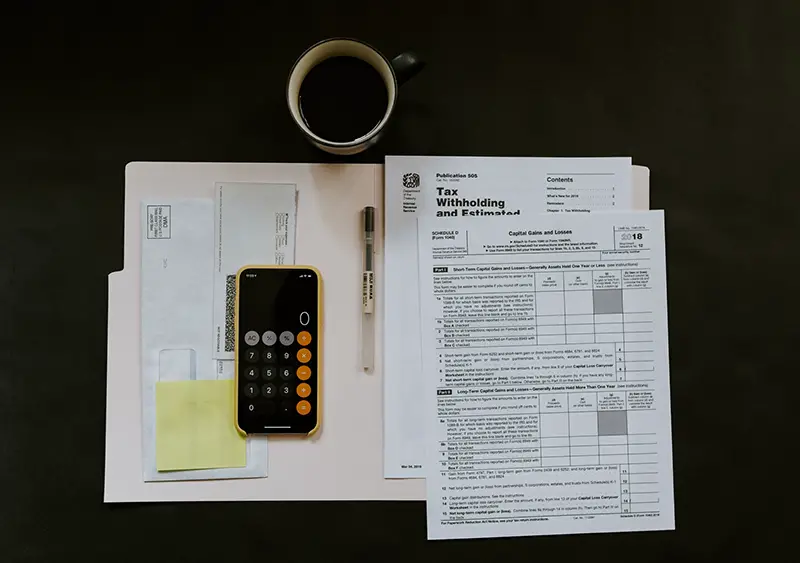Click here to get this post in PDF

If you’ve recently inherited a home, it’s essential to consider your tax obligations to understand whether or not you own capital gains after selling. Inherited land works a bit differently than most properties when it comes to capital gains.
Your whole benefit isn’t taxable when you sell the house. Instead, you’ll be taxed on the selling price minus the property’s market value on the day of the owner’s death.
What is Capital Gains Tax?
Capital gains are taxed differently by the IRS depending on how long you own the underlying asset.
- The short-term capital gains tax rate applies to properties and investments held for less than a year.
- Long-term capital gains tax rates apply to properties or investments held for more than a year.
The long-term capital gains tax rate is preferable to the short-term capital gains tax rate.
Short-term capital gains are taxed at the regular income tax rate, while long-term capital gains are taxed at one of three rates: 0%, 15%, or 20%, depending on your filing status and taxable income the year.
How Is Inherited Property Capital Gains Tax Calculated?
To figure out how much capital gains tax you owe, start with the inherited property’s tax basis (also known as cost basis). This is the asset’s initial purchase price plus any upgrades. Fortunately, this number is “stepped up” when you inherit the property. The tax basis is increased to the market price of the property in the event of the property owner’s death.
Consider the Following Scenario
After her father died, Rhyme inherited his house. The house cost $150,000 when he purchased it in 1978. He invested $50,000 in the property over the last 42 years, giving it a tax base of $200,000. Rhyme has the house appraised and discovers that it is worth $350,000. What are the tax implications of selling an inherited home in this scenario?
She would have no capital gains if she sold the house for the same price ($350,000). As a result, there is no capital gains tax. She would make $35,000 in capital gains if she improved it and sold it for $385,000. That is the taxable quantity.
How Do You Save Money on Inherited Property Capital Gains Taxes?
Whether or not you own capital gains after selling an inherited home, there are three options for lowering or avoiding this tax.
The Exclusion under Section 121
If a taxpayer lives in the property for at least two of the five years before the sale, the Section 121 Exclusion allows them to deduct up to $250,000 ($500,000 for joint returns) of capital gain from the sale. To put it another way, the house you inherited must be your primary residence.
Before Selling Inherited Property, Give It a Year
If you wait at least a year to sell your inherited land, the IRS considers it a long-term capital gain, which is taxed at a lower rate. It’s a short-term benefit if you sell the house within a year. That is, your capital gains are added to your wages. This may be particularly costly if it forces you into a higher tax bracket. It’s a good idea to consult a tax professional if you’re unsure.
Capital Gains Are Reduced By Selling Expenses
By deducting any expenditure incurred in preparing the house for sale or closing costs, you will reduce your capital gains. If you sell your home for $550,000 and its fair market value at the time of your inheritance was $450,000, you would have $100,000 in capital gains. You will lower this by deducting the $80,000 in closing expenses, leaving you with $20,000 in capital gains.
Final Thought
Capital gains are important to understand for someone who buys and sells real estate. Investors who understand capital gains and how to schedule investments can save money while getting the best out of their assets.
You may also like: Tax Planning
Image source: Unsplash.com
